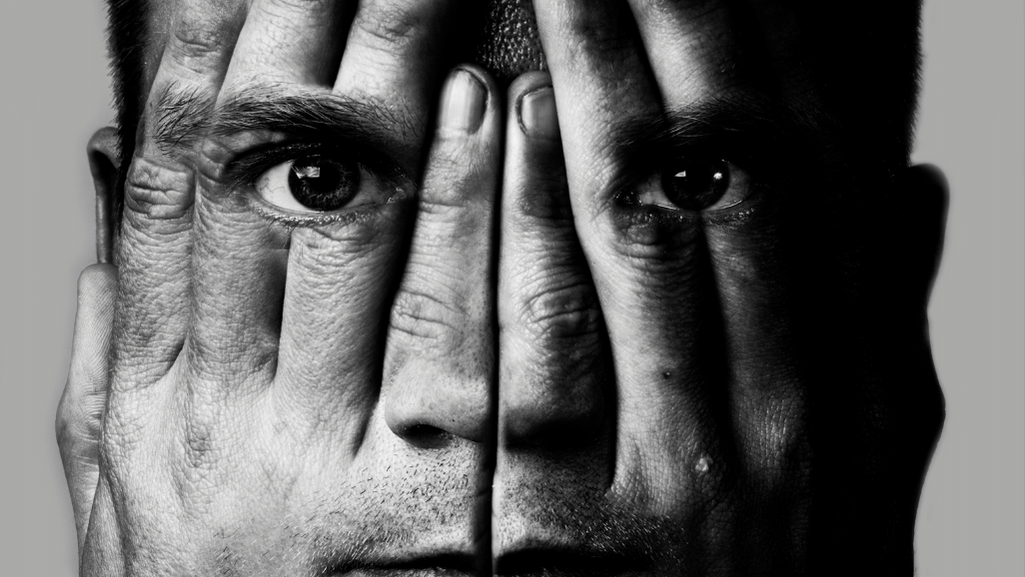In Islam, hiding someone’s fault is not only a noble but also a rewarded deed. In the teachings of Islam, it is recommended to cover up someone else’s error or transgression since it is regarded as a compassionate deed.
In Arabic, the act of hiding someone’s fault is known as “Sitrul ‘Awrah.” It is an act of concealing the imperfections of others from public exposure or humiliation. This concept is closely linked to the Islamic idea of privacy, where people are expected to respect the personal boundaries and privacy of others. Moreover, the Quran teaches Muslims to avoid making assumptions about others and backbiting and gossiping. In the Quran, Allah (SWT) states:
يَـٰٓأَيُّهَا ٱلَّذِينَ ءَامَنُوا۟ ٱجْتَنِبُوا۟ كَثِيرًۭا مِّنَ ٱلظَّنِّ إِنَّ بَعْضَ ٱلظَّنِّ إِثْمٌۭ ۖ وَلَا تَجَسَّسُوا۟ وَلَا يَغْتَب بَّعْضُكُم بَعْضًا ۚ أَيُحِبُّ أَحَدُكُمْ أَن يَأْكُلَ لَحْمَ أَخِيهِ مَيْتًۭا فَكَرِهْتُمُوهُ ۚ وَٱتَّقُوا۟ ٱللَّهَ ۚ إِنَّ ٱللَّهَ تَوَّابٌۭ رَّحِيمٌۭ
“O believers! Avoid many suspicions, ˹for˺ indeed, some suspicions are sinful. And do not spy, nor backbite one another. Would any of you like to eat the flesh of their dead brother? You would despise that! And fear Allah. Surely Allah is ˹the˺ Accepter of Repentance, Most Merciful” [1]
Islam teaches that it is preferable to counsel someone secretly instead of openly calling attention to their wrongdoings or mistakes if one knows them. Narrated Ibn ‘Umar: The Messenger of Allah (ﷺ) said:
“The Muslim is the brother of the Muslim, he doesn’t oppress him and doesn’t put him into ruin, and whoever is concerned for the needs of his brother, Allah is concerned for his needs, and whoever relieves a Muslim of a burden, Allah will relieve him of a burden from the burdens of the Day of Judgement and whoever covers (the faults of) a Muslim, Allah will cover (his faults) on the Day of Judgement.”[2]
Moreover, the Quran emphasizes the importance of forgiveness and compassion. Allah (SWT) says:
يَـٰٓأَيُّهَا ٱلَّذِينَ ءَامَنُوٓا۟ إِنَّ مِنْ أَزْوَٰجِكُمْ وَأَوْلَـٰدِكُمْ عَدُوًّۭا لَّكُمْ فَٱحْذَرُوهُمْ ۚ وَإِن تَعْفُوا۟ وَتَصْفَحُوا۟ وَتَغْفِرُوا۟ فَإِنَّ ٱللَّهَ غَفُورٌۭ رَّحِيمٌ
“O believers! Indeed, some of your spouses and children are enemies to you. So beware of them. But if you pardon, overlook, and forgive ˹their faults˺, then Allah is truly All-Forgiving, Most Merciful.” [3]
Rewards of Hiding Someone’s Fault
Muslims are not the only ones who believe in covering up someone else’s wrongdoing. In actuality, it is a global idea that is embraced by a wide range of societies and religions. Yet, in Islam, the idea is supported by divine teachings and benefits. It is not only morally right to cover up someone else’s wrongdoing but also a valuable strategy for fostering harmony and peace in society. Let’s examine the advantages and benefits of covering up someone’s wrongdoing in Islam:
Protection of Dignity and Honor
Covering someone’s mistake preserves their respect and dignity. Everyone was given respect and dignity when Allah (SWT) created them. It might be detrimental to their reputation and self-worth to expose their flaws publicly. Covering up someone’s error is a means to respect their right to privacy and reputational protection, which are rights that everyone possesses in Islam.
Foster Unity and Harmony
Concealing someone’s mistake is viable for fostering peace and cohesion in society. Islam stresses the need for harmony and brotherhood in creating a peaceful community. Every society’s ability to grow and flourish depends on its ability to foster a feeling of trust, mutual respect, and compassion. Nu’man bin Bashir (May Allah be pleased with them) reported that the Messenger of Allah (ﷺ) said:
“The believers in their mutual kindness, compassion, and sympathy are just like one body. When one of the limbs suffers, the whole body responds to it with wakefulness and fever.” [4]
Increase in Blessings
One’s blessings may be multiplied by covering up someone else’s error. Allah (SWT) appreciates people who overlook the transgressions of others and forgive them. In exchange, Allah (SWT) guarantees to multiply bounties in their lives. Abu Huraira reported Allah’s Messenger (ﷺ) as saying:
“He who alleviates the suffering of a brother out of the sufferings of the world, Allah would alleviate his suffering from the sufferings of the Day of Resurrection, and he who finds relief for one who is hard-pressed, Allah would make things easy for him in the Hereafter, and he who conceals (the faults) of a Muslim, Allah would conceal his faults in the world and in the Hereafter. Allah is at the back of a servant so long as the servant is at the back of his brother, and he who treads the path in search of knowledge, Allah would make that path easy, leading to Paradise for him and those persons who assemble in the house among the houses of Allah (mosques) and recite the Book of Allah and they learn and teach the Qur’an (among themselves) there would descend upon them tranquility and mercy would cover them and the angels would surround them and Allah mentions them in the presence of those near Him, and he who is slow-paced in doing good deeds, his (high) lineage does not make him go ahead.” [5]
Protection from Backbiting
Backbiting is a vice that can be avoided by hiding someone’s wrongdoing. In Islam, backbiting is a grave sin, and the Quran explicitly bans it. One approach to prevent backbiting and rumors about someone is to keep their error quiet. Abu Huraira reported Allah’s Messenger (ﷺ) as saying:
“Do you know what is backbiting? They (the Companions) said: Allah and His Messenger know best. Thereupon he (the Holy Prophet) said: Backbiting implies your talking about your brother in a manner which he does not like. It was said to him: What is your opinion about this that if I actually find (that failing) in my brother which I made a mention of? He said: If (that failing) is actually found (in him) what you assert, you in fact backbit him, and if that is not in him it is a slander.” [6]
Mercy and Forgiveness from Allah
The possibility of receiving Allah (SWT)’s pardon and kindness while concealing one’s wrongdoing. Allah (SWT) appreciates people who show mercy and forgiveness to others. Covering someone’s mistake is an act of kindness and forgiving them. Allah (SWT) affirms that those who are compassionate and forgiving will get rewards. Allah (SWT) says in the Quran:
وَسَارِعُوٓا۟ إِلَىٰ مَغْفِرَةٍۢ مِّن رَّبِّكُمْ وَجَنَّةٍ عَرْضُهَا ٱلسَّمَـٰوَٰتُ وَٱلْأَرْضُ أُعِدَّتْ لِلْمُتَّقِينَ
“And hasten towards forgiveness from your Lord and a Paradise as vast as the heavens and the earth, prepared for those mindful ˹of Allah˺.” [7]
Conclusion
In Islam, covering up someone’s wrongdoing is a virtue with several advantages and rewards. It safeguards people’s honor and dignity, promotes peace and harmony, enhances benefits, guards against backbiting, and brings Allah’s kindness and pardon (SWT). As Muslims, we are urged to refrain from assuming the worst about others, refrain from slander and gossip, and provide advice to people in private rather than openly calling out their flaws. To foster a culture of compassion, forgiveness, and mercy in our society, we should work to hide other people’s transgressions. This deed of kindness promotes a peaceful and compassionate society and is blessed by Allah (SWT).
Hiding Someone’s Fault Is Rewarding is a part of our amazing series. To learn more about the guidance given to us by Allah and the Holy Prophet (peace and blessings be upon him), follow our series Time to Revive. By Allah’s will, you shall have increased knowledge and understanding.
By Joweria Shahid
References
- Al-Quran (Surah Al-Hujurat 49:12)
- Jami` at-Tirmidhi 1426 : Book 17, Hadith 6
- Al-Quran (Surah At-Taghabun 64:14).
- Riyad as-Salihin 224: Introduction, Hadith 224
- Sahih Muslim 2699a: Book 48, Hadith 48
- Sahih Muslim 2589: Book 45, Hadith 91
- Al-Quran (Surah Al-Imran 3:133)





Well explained and very insightful….. JazakAllah.